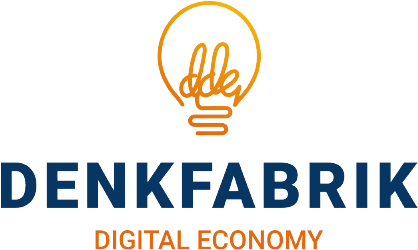Erfolgsfaktoren in digitalen Ökosystemen

How to… quantitative Datenauswertung
2023-06-20
How to… write a successful Thesis
2023-08-30Definition und Bedeutung digitaler Ökosysteme
Digitale Ökosysteme haben in den letzten Jahren ein signifikantes Wachstum erfahren (Chung et al., 2020). Dennoch ist das allgemeine Verständnis dieser Ökosysteme noch rudimentär. Eine einheitliche Definition gibt es nicht – auch wenn in den letzten Jahren Versuche unternommen worden sind, solche zu definieren. Da dies zumeist aus unterschiedlicher Betrachtungsweise bzw. einem veränderten Fokus stattfand, sind diese Definitionen nicht allgemeingültig (siehe u.a Chang & West 2006, Valdez-De-Leon, 2019, Jacobides et al., 2018).
Für ein einheitliches Verständnis im Sinne dieser Forschung werden Ökosysteme als „modulare, interaktive, selbstorganisierende Systeme definiert, deren begrenzender Rahmen Bedürfnisspektren sind„.
Im Kern dieser digitalen Ökosystemen stehen digitale Plattformen und die (gemeinsame) Generierung eines Mehrwertes (Yordanova et al., 2020).
Aus einer wirtschaftlichen Perspektive gehen Studien davon aus, dass bis zum Jahr 2025 ca. 30% der gesamtwirtschaftlichen Leistung in Ökosystemen stattfinden wird (Bally & Brogini, 2020). Das Aufbrechen klassischer Wertschöpfungsketten (u.a. nach Porter) und die Neuentwicklung wertschaffender Systeme ermöglicht es Unternehmen höhere Gewinne zu erzielen und Verbindungen über traditionelle Grenzen hinaus aufzubauen (Valdez-De-Leon, 2019).
Nicht verwunderlich ist daher auch das erhöhte wissenschaftliche Interesse an diesem Thema. Dennoch liegen nur wenige Forschungsergebnisse dazu vor. Vorreiter sind u.a. Chang & West, Valdez-De-Leon, Jacobides et al, Ammon & Brem, 2013)
Erfolgsfaktoren
In einer kürzlich durchgeführten Studie am Department Marketing & Sales der FH CAMPUS 02 wurden Erfolgsfaktoren digitaler Ökosysteme genauer herausgearbeitet. Zusammengefasst sind diese:
- Akteure
Marktführer haben eine bessere Position, um die erforderlichen Partner anzuziehen. Je mehr Partner ein Ökosystem aufweist und je diverser der Branchenhintergrund, desto größer ist die Erfolgsaussicht des Ökosystems (Jacobides/Lang, 2019). Dennoch muss man sich von klassischen Hierarchien lösen und verinnerlichen, dass jeder Akteur eines digitalen Ökosystems ein wertvoller Partner sein und Erfolg voranbringen kann (Boekenfeld, 2020).
Erfolg in digitalen Ökosystemen beruht auf der Integrationsmöglichkeit der Akteure und Partner (Kamialjet, 2021) - Dynamische Nutzeransprache
Ökosysteme finden dann Verwendung, wenn für die Nutzer*innen ein Mehrwert geboten wird. Die Ansprache dieser User*innen muss auf einer dynamischen Strategie beruhen, um nachhaltig Erfolg zu haben (Parker, 2017) - Einfache Transaktionen
Wertschöpfung wird nicht durch Plattformen kontrolliert. Vielmehr schaffen solche den Raum der wertschöpfenden Interaktion (Parker, 2017). Die entscheidende Fähigkeit von Vermittlern (‚orchestrator‘) hybrider Ökosysteme besteht darin, sowohl Fach- als auch Technologieexpert*innen zu rekrutieren und sie zusammenzubringen, um Herausforderungen gemeinsam zu lösen, einen technologischen Fortschritt aufzubauen, der es Akteuren ermöglicht, nahtlos aufeinander aufzubauen und Nutzer*innen durch einfache Transaktionen zu binden (Reeves/Whitaker, 2021).
Literatur
Ammon, T., & Brem, A. (2013). Digitale Ökosysteme und deren Geschäftsmodelle: Analyse und Implikationen für klassische Buchverlage. In F. Keuper, K. Hamidian, E. Verwaayen, T. Kalinowski, & C. Kraijo (Eds.), Digitalisierung und Innovation. Planung—Entstehung—Entwicklungsperspektiven (pp. 93–119). Springer Gabler.
Bally, A., & Brogini, M. (2020). Digitale Vernetzung für mehr Marktdominanz. Gestaltung von Digitalen Ökosystemen mittels API-Strategie (1st ed.). Haufe-Lexware.
Boeckenfeld M. (2020): Digital ecosystems: success factors for online mortgages, [online] https://www.linkedin.com/pulse/digital-ecosystems-success-factors-online-mortgages-boeckenfeld [17.06.2023].
Chang, E., & West, M. (2006). Digital Ecosystems A Next Generation of the Collaborative Environment. IiWAS, 214, 3–24.
Chung, V., Dietz, M., Rab, I., & Townsend, Z. (2020). Ecosystem 2.0: Climbing to the next level. McKinsey Quarterly, September, 1–9.
Jacobides, M. G., Cennamo, C., & Gawer, A. (2018). Towards a theory of ecosystems. Strategic Management Journal, 39(8), 2255–2276
Jacobides/Lang (2019): What does a successful digital ecosystem look like? [online] https://www.bcg.com/publications/2019/what-does-successful-digital-ecosystem-look-like [17.06.2023].
Kamaljet S. (2021): Handbook of research on management and digital enterprise transformation, IGI Global, p.102.
Parker G. et al. (2017): The platform revolution: How networked markets are transforming the economy and how to make them work for you, Norton & Company, p.45-56.
Revees M./Whitaker K. (2021): Winning the 20s: A leadership agenda for the next decade (inspiring the next game), De Gruyter, p.35-36.
Valdez-De-Leon, O. (2019). How to Develop a Digital Ecosystem: A Practical Framework. Technology Innovation Management Review, 9(8), 43–54.
Yordanova, S., Toshkov, K., & Stefanova, K. (2020). Digital Ecosystem Design Approaches. In D. G. Velev & P. Zlateva (Eds.), Recent Trends in biomedical Technology (Vol. 100, pp. 313–323). Publishing Complex.





